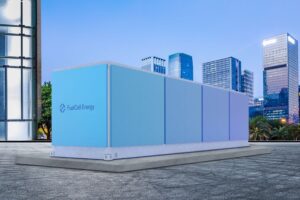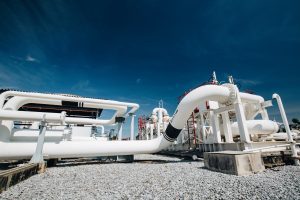The study is part of the Integrated Energy research programme undertaken at the National Subsea Centre (NSC), created in partnership between Scotland’s Robert Gordon University (RGU) and the Net Zero Technology Centre.
Professor James Njuguna, Integrated Energy Lead at the NSC, said: “Using the high-pressure depths of subsea conditions, this project will help to store hydrogen at scale in a clean, efficient, and safe way. It will also help to reduce carbon emissions by decreasing our reliance on fossil fuels to produce hydrogen and support manufacturing opportunities as we increase efforts to meet demand.”
The National Subsea Centre’s Integrated Energy portfolio of research aims to design, model, evaluate, and construct leading-edge integrated marine energy grids to support the transition to decarbonised energy using smart materials, robotics, and mixed energy systems.
The National Subsea Centre is a multi-million-pound centre for excellence in subsea- and ocean-related research and technology development, and part of the Aberdeen City Region Deal.
The aim of the NSC is to accelerate the energy transition through smart technologies applied to industrial and environmental challenges in subsea and related marine sectors.
The centre harnesses academic expertise, research capability, and facilities available at the RGU to establish world-class research and development in the fields of subsea engineering, artificial intelligence, data science, and integrated energy.






